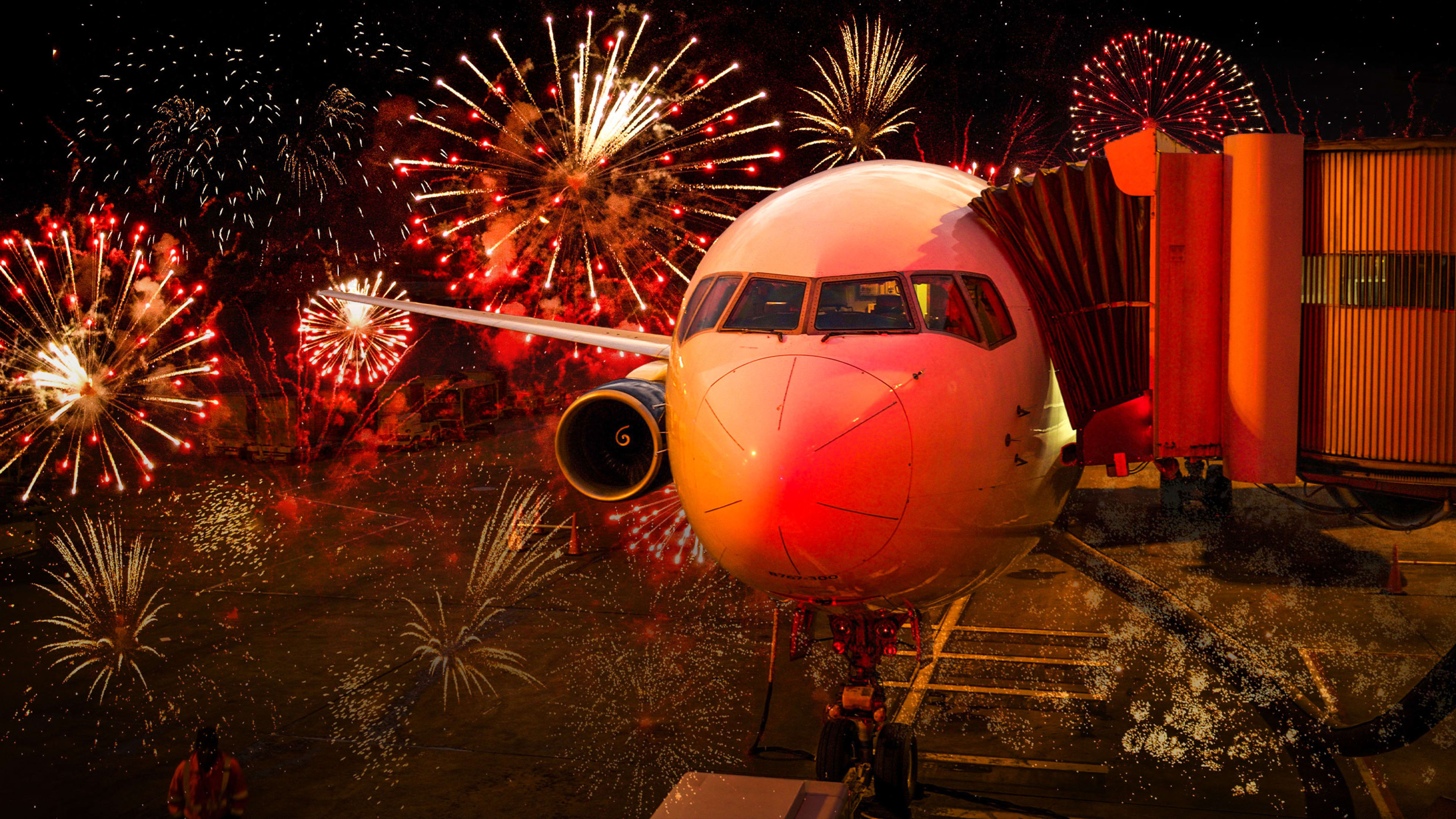Passengers, stranded at the terminals after airline schedules were decimated following a series of storms, curled up on tables, luggage carts, and even the well-worn terminal carpet in an attempt to get some rest. It was a scene that’s becoming all too familiar these days, raising concerns about travel ahead of the busy, and long, July 4 holiday weekend.
Government officials have proposed changes to the system that are more passenger-friendly. But things could get worse before they get better . . . perhaps as early as this weekend.
July 4 travel could be bumpy
Airports are bracing for record-breaking numbers this July 4 weekend. AAA projected 4.17 million Americans will hit the skies, an increase of 11.2% over 2022 and 260,000 travelers more than the previous record, set in 2019.
Some early fliers are already facing problems. While most carriers are finally operating normally after three days of delays, passengers on United had seen nearly 400 canceled flights by 3 p.m. ET Thursday and more than 560 delayed, according to Flight Aware. (United blamed a shortage of air traffic controllers and pledged to get things back on track before the weekend.)
Beyond the crowds, there’s a chance of more scattered storms in parts of the Eastern and Central U.S. early in the weekend. Plus, starting Saturday, federal officials say some planes may not be able to fly in bad weather because of possible interference from new 5G wireless service. (Delta is most at risk here, as 190 of the 900 planes in its fleet that could be impacted have not been retrofitted with new radio altimeters due to supply issues.)
What would the passenger bill of rights offer?
In February, Democratic Senators Edward Markey of Massachusetts and Richard Blumenthal of Connecticut introduced an Airline Passengers’ Bill of Rights, which quickly won the support of the Biden White House. Two months later, the Department of Transportation proposed rule changes that would require airlines to provide compensation and cover expenses, such as meals, hotels, and rebooking, when airlines are responsible for stranding passengers.
Now, say consumer advocates, the latest spate of troubles could push Congress to act.
“Recent events make it more likely Congress will pass new airline consumer protections and [the] DOT is more likely to adopt new rules, such as for family seating,” Teresa Murray, consumer watchdog at the Public Interest Research Group tells Fast Company. “There’s a lot of momentum for this right now. I’m not saying everything on the wish list will get approved, but chances are better than a few years ago.”
The DOT’s proposal wouldn’t take all the pain out of delays and cancellations, but it would make them a bit more tolerable.
Among the proposals by the government are:
- Compensation for passengers when there is a controllable airline cancellation or significant delay.
- A meal or meal voucher, overnight accommodations, ground transportation to and from the hotel, and rebooking for controllable delays or cancellations.
- Timely customer service during and after periods of widespread flight irregularities.
- Guaranteed adjacent seats for children 13 or under and their accompanying adult at no additional cost.
One huge caveat: Delays due to weather, which is increasingly a factor in delays/cancellations, would not be covered.
“The biggest benefit to air travelers would be reciprocity and reimbursement for expenses when flights are canceled or significantly delayed,” says Murray. “Basically, yes, consumers are already guaranteed refunds by law if their flight is canceled for any reason. But people don’t necessarily want refunds—they want to get where they were heading, as quickly as possible. Mandatory reciprocity would require airlines to get a passenger on a flight with another airline that has available seats if the original flight was canceled or delayed by three hours or more, and the cancellation was in some way the airline’s fault.”
Transportation Secretary Pete Buttigieg has been pushing airlines to compensate passengers and cover expenses for the better part of the past two years. While some progress has been made, such as guaranteed meals or hotels when the delay or cancellation was the airline’s fault, there’s obviously a long way to go.
Recognize your brand’s excellence by applying to this year’s Brands That Matter Awards before the final deadline, June 7.
Sign up for Brands That Matter notifications here.
